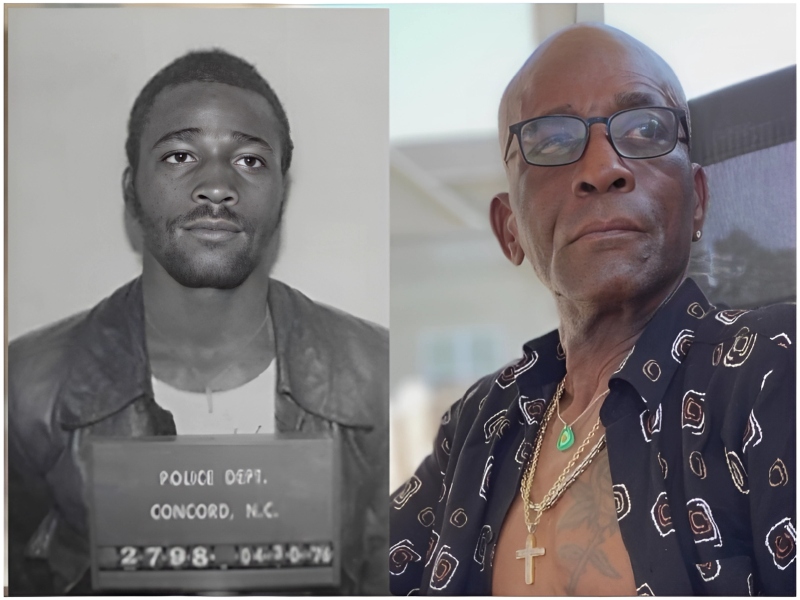After enduring 44 years of wrongful imprisonment for a crime he did not commit, Ronnie Long, a Black man from North Carolina, has been awarded a historic $25 million settlement.
The settlement, agreed upon with the city of Concord, marks a significant step towards justice for Long, who was wrongfully convicted of raping a white woman in 1976.
Long, now 68 years old, settled his civil lawsuit with the city for $22 million, while the North Carolina State Bureau of Investigation contributed an additional $3 million to the settlement, according to Duke Law School’s Wrongful Convictions Clinic.
This settlement stands as the second-largest wrongful conviction settlement on record, bringing some solace to Long after years of injustice.
“It’s, obviously, a celebratory day today knowing that Ronnie’s going to have his means met for the rest of his life with this settlement. It’s been a long road to get to this point, so that’s a great outcome,” said clinical professor Jamie Lau, Long’s criminal attorney.
The city of Concord issued a rare public apology to Long, acknowledging the immense harm caused to him and his family by the wrongful conviction.
“He wrongly served 44 years, 3 months and 17 days in prison for a crime he did not commit,” the city stated. “While there are no measures to fully restore to Mr. Long and his family all that was taken from them, through this agreement we are doing everything in our power to right the past wrongs and take responsibility.”
Long’s attorneys detailed numerous issues with his trial, including the removal of Black potential jurors by law enforcement officials, the absence of physical evidence tying Long to the crime, and the suggestive identification procedure used by police to target him.
In August 2020, the 4th U.S. Circuit Court of Appeals overturned Long’s conviction, citing violations of his due process rights, and he was released from prison. Governor Roy Cooper later pardoned him, and the state awarded him $750,000 in compensation.
Since his release, Long has been committed to advocating for criminal justice reform, using part of his settlement from the State Bureau of Investigation towards this cause. He has been reconnecting with his family, including his wife, whom he married while incarcerated, and a son from a previous relationship.
Long and his attorneys hope that his case will serve as an example for others, setting a precedent for how wrongful conviction cases should be handled in the future.
As attorney Sonya Pfeiffer remarked:
“If that could be the gold standard for all of these cases, that may be the closest that exonerees get to justice.”
A case of systemic injustice
Wrongful convictions are a deeply troubling manifestation of systemic injustices against Blacks within the criminal justice system.
The case of Ronnie Long is evidence of the oft-referenced profound impact of racial bias, flawed procedures, and unequal access to justice in the U.S justice system.
Data shows Black individuals have faced systemic discrimination and prejudice within the criminal justice system, from biased policing practices to racial profiling and discriminatory jury selection.
These systemic injustices often result in wrongful arrests, unfair trials, and wrongful convictions, like in the case of Long, perpetuating cycles of trauma, loss, and devastation for individuals and their families.
Addressing wrongful convictions requires comprehensive reforms aimed at dismantling systemic racism and promoting equity and fairness in the criminal justice system.
This includes implementing unbiased policing practices, addressing implicit bias in jury selection, ensuring access to competent legal representation, and promoting transparency and accountability in all stages of the criminal justice process.
Additionally, efforts to prevent wrongful convictions must include measures such as improved evidence collection and preservation, rigorous oversight of forensic practices, and increased support for post-conviction review and exoneration efforts.
Ultimately, achieving justice requires a commitment to confronting and dismantling the systemic injustices that perpetuate wrongful convictions, particularly those that disproportionately impact Black individuals.
Only through comprehensive reform and a dedication to upholding the principles of fairness, equality, and accountability can we begin to address the pervasive issue of wrongful convictions and work towards a more just and equitable society for all.

